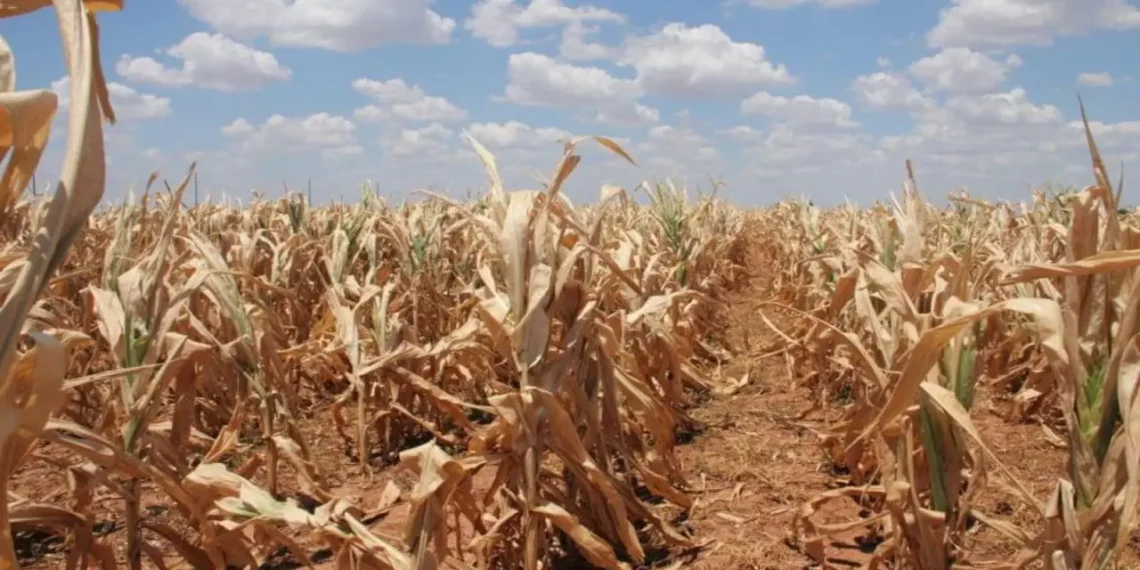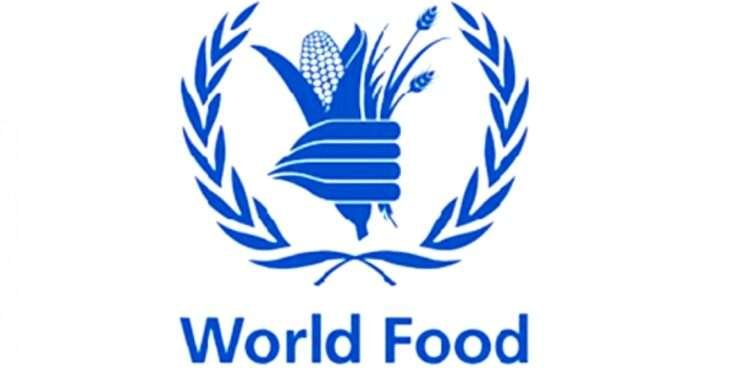Ghana is currently facing a significant dry spell, a situation that has severely impacted the agricultural sector, particularly smallholder farmers. These farmers, who play a pivotal role in feeding the nation, are experiencing reduced yields, loss of crops, and difficulties in sustaining their livelihoods.
However, the government, through the Ministry of Food and Agriculture, has stepped up to address the challenges posed by the dry spell, with Hon. Bryan Acheampong, the Minister for Food and Agriculture, providing reassurance about the nation’s food security and outlining key measures to mitigate the crisis.
In his recent update to the nation, Hon. Acheampong acknowledged the severity of the dry spell and its effects on farming activities across Ghana.
“The dry spell underscores the importance of long-term agricultural planning and investments.
“The government, with support from international partners, is committed to ensuring our farmers are equipped to withstand future shocks.”
Hon. Bryan Acheampong, Minister for Food and Agriculture
The prolonged lack of rainfall has led to a reduction in crop production, threatening the livelihoods of farmers and creating concerns about the availability of staple foods.
Despite these challenges, the minister assured Ghanaians that the country’s food system remains secure, and steps are being taken to restore farming activities.
The dry spell has affected eight regions of Ghana, impacting approximately 62% of the country’s grain production. Maize, rice, groundnuts, soybeans, sorghum, millet, and yams have all suffered significant losses.
The primary concern for most Ghanaians during such times is food security. With the agricultural sector responsible for providing the bulk of the country’s food, any disruption in farming activities can lead to food shortages, inflation in food prices, and increased hardship, especially for vulnerable communities.
“Preliminary reports indicate that about 928,523 farmers and 1.86 million hectares of crops were at risk. Those farmers would lose an estimated investment of GH¢7.4 billion if there was total crop failure.”
Hon. Bryan Acheampong, Minister for Food and Agriculture
However, the government remains resolute in its commitment to food security. Hon. Acheampong emphasized that the country’s food system is safe, thanks to swift government intervention.
Government Measures to Mitigate the Impact

In a comprehensive plan to support the agricultural sector, the government has rolled out several interventions aimed at revitalizing farming activities and ensuring food production is sustained. Key among these is the distribution of fertilizers and seeds to 800,000 smallholder farmers across the country.
“Each of the 800,000 targeted farmers will receive 2 bags of NPK fertilizer, 1 bag of urea, and maize or rice seeds.
“This initiative is expected to yield 360,000 metric tons of paddy rice and 770,000 metric tons of maize.”
Hon. Bryan Acheampong, Minister for Food and Agriculture
In addition to supporting smallholder farmers, Hon. Acheampong revealed that the government has focused on commercial farming operations. A total of 20,000 MT of fertilizers will be distributed to commercial farmers, with each farmer receiving up to 50 bags of NPK and 25 bags of Urea.
One of the standout features of the government’s intervention is the “provision of interest-free loans to commercial farmers.” Administered through the Ministry of Food and Agriculture in collaboration with partners, these loans will enable farmers to access critical resources needed to sustain their operations during the dry spell.
“Additionally, an online grain market is being set up to allow the public to conveniently purchase maize and rice at affordable prices starting October 10,” Hon. Acheampong said.
To address the immediate food needs of vulnerable farmers affected by the dry spell, the Agric Minister noted that the government will distribute food grants to over 800,000 farmers in affected regions. Each farmer will receive 25kg of rice and 100kg of maize to help sustain their households during these challenging times.
Hon. Acheampong added that the distribution of inputs and food grants will be managed through the Ghana Agriculture and Agribusiness Platform (GhAAP), ensuring transparency and accountability.
To ensure that the measures are effectively implemented, “A team of 3,000 personnel has been deployed nationwide to register farmers and ensure no one is left out of the relief programs,” he noted.
Hon. Bryan Acheampong’s update and the subsequent initiatives will undoubtedly ease the burden on smallholder and commercial farmers alike. However, the reliance on short-term fixes raises concerns about Ghana’s readiness for future challenges.
The emphasis on modernizing the sector through digital platforms is a positive step, but more is needed to address the country’s agricultural vulnerability to environmental changes.
For now, the government’s efforts inspire cautious optimism. The seeds of hope have been planted, but whether they can grow into a robust and resilient agricultural system depends on continued investment, strategic foresight, and a collective commitment to addressing both the immediate crisis and future threats.
READ ALSO: Rutte Takes Over As NATO Head























